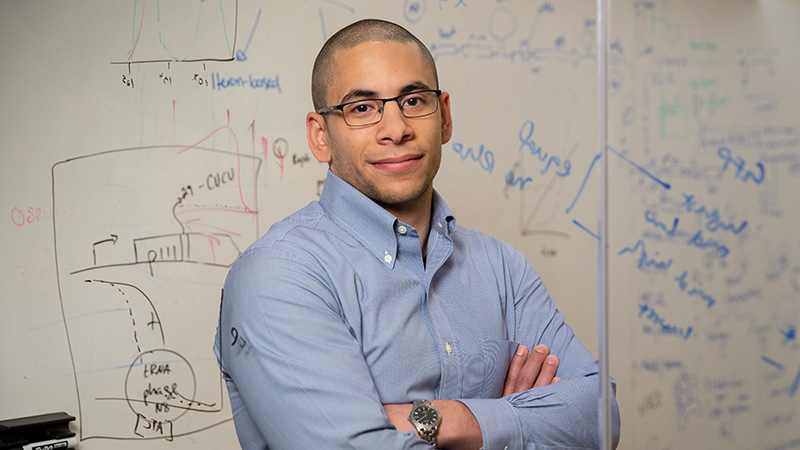
What do space exploration and carbon dioxide emissions have in common? Look to Ahmed Badran’s laboratory for an answer.
Ahmed Badran, PhD, an assistant professor in the Department of Chemistry at Scripps Research, has been granted two awards to support his research addressing some of today’s most significant global challenges.
These include the Young Investigator Research Program (YIP) award from the Air Force Office of Scientific Research (AFOSR) of the Air Force Research Laboratory, as well as the Scialog: Negative Emissions Science Initiative award from the Research Corporation for Science Advancement (RCSA) and the Alfred P. Sloan Foundation.
AFOSR grants the YIP awards to up-and-coming scientists, with the objective of fostering basic research in science and engineering. As a recipient, Badran will receive $450,000 over the course of three years to support his lab’s investigation of biological carbon dioxide (CO2) for long-term space exploration. He will focus on developing both natural and engineered biosynthetic CO2 recycling strategies for non-terrestrial environments (meaning aquatic, marine or wetland ecosystems).
Additionally, Badran has received a $50,000 grant distributed over one year as part of the Scialog: Negative Emissions Science Initiative. The Scialog awards “aim to catalyze advances in basic science that will enable technologies for removal of CO2 and other greenhouse gases to become more efficient, affordable and scalable.” With these funds, Badran and his lab are engineering new ways to sustainably produce acrylates—chemicals that are used in plastics, adhesives, coatings, and other products. Badran is one of 19 researchers across the United States and Canada who received such an award, and he will attend the fourth annual Scialog Negative Emissions Science meeting in November 2023 to discuss current challenges and share knowledge among other award recipients and thought leaders.
At Scripps Research, Badran is focused on first understanding, and then re-engineering the most fundamental molecules and genetic circuits in living cells. His ultimate goal is to develop next-generation solutions to mounting global issues in healthcare and climate change. His lab’s work is at the intersection of many different disciplines, including chemical biology, bioengineering, directed evolution, genome editing and synthetic biology.